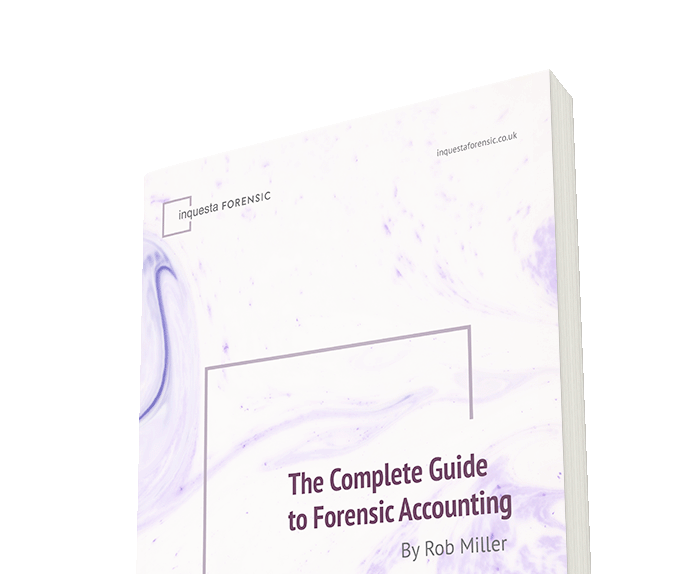FINANCIAL FRAUD DEFENCE
Forensic accountants can often be instrumental in successfully defending cases of financial fraud. Find out more about how we can help.
How Forensic Accounting Helps with Defending Financial Fraud Cases
Financial fraud cases are often incredibly complex and will contain large volumes of data. Forensic accountants carry out a thorough analysis and investigation of the financial records provided. Crucially, they will also present the information in such a way that is easy for the judge and jury to digest.
Who Instructs Forensic Accountants?
A forensic accountant can be instructed by a criminal defence solicitor to assist with financial fraud cases. Using their specialist skills and know-how, a forensic accountant can be instrumental in securing an acquittal or a reduction in fines.
Forensic accountants will often be able to chart a course for the defence team’s case that is based entirely on the figures, something that a prosecution’s argument typically does not contain.

Need Our Assistance?
If you are looking for expert guidance for financial fraud cases, contact our specialist forensic accountants.
Types of Financial Crimes That Can Be Defended
There are several different types of financial crimes that a forensic accountant will be skilled at defending, including:
- Money laundering
- Theft
- Accounting irregularities
- Fraud
In addition, they will have in-depth expertise with working on cases that come under the Proceeds of Crime Act, including defending Confiscation Orders.
Free eBook
The Complete Guide to Forensic Accounting
Learn how forensic accounting can have an impact on a wide range of business and personal matters, the processes involved, and how Inquesta Forensic can assist with our free downloadable guide.

The Forensic Accounting Process for Financial Crime
There are several complex steps that a forensic accountant will go through when defending financial fraud cases. From the initial collation of evidence, to producing a thorough report and potentially acting as an expert witness in court, each and every part of the process will be meticulously executed in order to achieve the best possible results for clients.
Before taking on a case, a forensic accountant will typically consult with their client to ascertain the basics of the situation and offer an expert opinion on the case’s validity and chances of success. It is at this point that the client will present any preliminary evidence and information.
The next part of the process is to perform a thorough analysis of the evidence provided by the client. This can include working through high volumes of information and tracing the flow of funds through multiple bank accounts. Such is the level of skill required, a forensic accountant can often spot things that could prove crucial to a case — things which may otherwise have been missed.
A forensic accounting investigation will leave no stone unturned in its pursuit of the facts. As such, there are often times where it leads a defence team’s case down another avenue of exploration that had not been thought of before. Should this happen, a forensic accountant will identify any additional sources of information that would help the process reach a satisfactory conclusion.
With their analysis complete, a forensic accountant will present their findings in the form of a detailed and in-depth report. The conclusions of this document will most likely be examined in court, so they will have to be strong enough to withstand cross examination — often from other forensic accountants.
Where necessary, a forensic accountant can assist a legal team by acting as an expert witness in court under cross examination. Their evidence and unique insights will often prove pivotal in a case.
How Inquesta Forensic Helps with Financial Crime Cases
Our team has amassed decades of experience in defending complex financial fraud cases and securing a positive outcome — whether that be in the form of a complete acquittal or the reduction of penalties. The work we carry out regularly includes elements such as assessing the true value of the crimes and the defendant’s personal gain (if any).
We also identify other areas of investigation that have not already been explored, and are able to effortlessly alter our processes to match each case. In addition, we are accustomed to obtaining Legal Aid funding and are able to take on cases at Legal Aid rate, while being acutely aware of the complications and quirks that this entails.
Frequently Asked Questions
A forensic accountant is trained to, and must always be prepared to present their findings in court. They will generally act as an expert witness in the case, and face cross-examination from the opposing side. Their testimony can often be crucial when it comes to deciding the outcome.
When defending a case of financial fraud, a forensic accountant will perform a number of duties. These range from analysing high volumes of data, identifying the final destination of criminal monies, assessing the true value of the crimes, and much more besides.
Criminal defence solicitors will often simply not have the time or know-how to expertly go through reams of often-complex data while putting together their case. By putting this in the hands of a specialist forensic accountant, they can be confident that no stone will be left unturned in the pursuit of a positive result.


